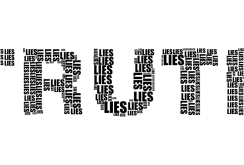
As part of the development of fairness analysis[1], for the past one and a half decades, I have elaborated on the paradoxical nature of fairness in different discourses. In this short article, I will present some basic aspects of the paradoxical nature of fairness in the form of separate paradoxes.
Paradox 1. The Demand of Fairness as the Force to Sustain Unfairness
Description: While social inequality is the most important source of social unfairness, the demand of fairness is an important logical force to sustain social inequality.
Brief Explanation: Through denying each other’s legitimacy of breaking the status of quo, the demand of fairness among those with the same social status becomes an important force to sustain the existing social inequality.
Paradox 2. The Paradoxical Consequence of the Rule of Fairness
Description: The outcome of fair competitions could become the seed of unfairness in the future.
Brief Explanation: For example, all top sports stars are created through fair competitions. But after they become rich and powerful, they and their families would gain great advantages over other ordinary people in various areas of life.
Paradox 3. The Paradox of Conflicted Fairness
Description: The demand of fairness of one group of people might imply the loss of the interests of others. Especially, when both the service providers and the service receivers are involved, the demand of fair treatment from either side might imply the loss of the interests of the other side.
Brief Explanation: For example, when the fairness demand of one social sector means better treatment but lower standards of quality of work, they might potentially harm the interests of the rest of the society.
Paradox 4. The Locality Restraint of Fairness
Description: The judgment of fairness can only extend retrospectively or laterally to a limited scale.
Brief Explanation: Social reality is the outcome of historical events, and always under the economic and political influence of the cultural environment. Therefore, when dealing with the issue of fairness, we might need to take into account certain historical and social influential factors; however, this can only be done within a limited scope, because it is impossible to trace indefinitely the historical causes of a fairness issue, nor is it possible to trace all existing social and natural conditions; hence, all fairness judgments must be cut off at certain points of the influential relationship.
Paradox 5. The Possible Hidden Unfairness to the Fairness Demander
Description: Human demands for apparent fairness might often entail unfairness to the demanders without their awareness due to the lack of a thorough knowledge of the relevant background.
Brief Explanation: It is not rare in any human society that people demands certain treatment in the name of fairness which might actually undermine their own substantial interests.
Final Remarks
As one of the fundamental building blocks of human civilization, the notion of fairness permeates all over the activities of our life, and knowing its paradoxical nature should definitely not be meant to ruin the genuine sense of fairness itself; rather, it could help to posit the notion of fairness into its proper logical position by correcting the confusion resulting from the ignorance of the actual role of fairness in practice.
Please click this link to read more of the topic: https://wp.me/p1w7vF-4S
[1] Dai, Rongqing. 2017. A Brief Discussion on Fairness Analysis. Scholars’ Press















